Mira Prabhu's Blog, page 88
February 17, 2014
My Answers To “Literary Would You Rather” #5
Robert’s easy style — so unassuming and honest that I feel like he and I are having a little chat — makes me want to share his latest post with you….
 Originally posted on 101 Books:
Originally posted on 101 Books:
Let’s get straight to the point.
Here are my answers to the literary would you rather game we played on Friday.


February 13, 2014
Setbacks, Success, Excuses, Oh MY! The Truth About Publishing & Myths About Muses
I love Kristen’s blog — mainly because she tells it like it is…in this case, part of the enchilada about the writing life and the stream of excellent excuses one makes NOT to write….from not having a reliable muse or support group…to not having a big enough chunk of time per day to get right down to that troublesome next chapter…ad nauseam….i also enjoy Kristen’s style…she’s REAL!
 Originally posted on Kristen Lamb's Blog:
Originally posted on Kristen Lamb's Blog:

Image via Flickr Creative Commons, via Stupid.Photos
Much of any kind of success is related to attitude. We can’t control the weather, the future of publishing, the global economic conditions, but we can control our attitude. To be successful at anything, there are a few core principles we should embrace and work on every day. These are muscles of character.
We have peace, joy, patience, self-discipline. Those things are already inside of us. However, we must choose to work on them and do our part to strengthen these “character muscles” to enjoy their benefits.


January 10, 2014
Snakes Alive…just where did those rockin’ sixties go?
 Why is this gorgeous serpent challenging us with that wicked look? I’d like to think it’s because—in the mythological consciousness of earth folk—the snake represents both death and rebirth, torment as well as wisdom; wisely, it shucks off its old skin when it’s time for a change, and reveals a strikingly patterned new sheath right beneath. And yet, while this fascinating creature symbolizes the higher wisdom that should naturally arise with the passage of time, how many of us focus on spiritual evolution?
Why is this gorgeous serpent challenging us with that wicked look? I’d like to think it’s because—in the mythological consciousness of earth folk—the snake represents both death and rebirth, torment as well as wisdom; wisely, it shucks off its old skin when it’s time for a change, and reveals a strikingly patterned new sheath right beneath. And yet, while this fascinating creature symbolizes the higher wisdom that should naturally arise with the passage of time, how many of us focus on spiritual evolution?
And now 2014 is here, begging the six trillion rupee question: what do you plan to do with me, honey? Don’t watch out, and I’ll be gone in the metaphorical wink of an eye…an evanescent dream, a fistful of fairy dust, a wisp of cirrus…no different than all those other years that have sped past since you slipped out of your mama’s womb.
Time passes so swiftly that I sometimes look back on distant events and wonder whether I dreamed them up. What happened, for instance, to that hip era when the beautiful people were using psychedelics and raving about spotting Lucy In The Sky With Diamonds? Oh no, here I go again, dating myself falsely…truth be told, when the Beatles exploded on to the international music scene, I was but a mewling puking infant—as the Bard of Avon so fondly described little ones; if I even thought about beetles at the time, you can bet they were the creepy crawly kind.
Cutting to the chase, what brought humanity from there to here? Time did. And here we are again, with yet another artificially packaged segment of three hundred and sixty-five days stretching tantalizingly ahead.
I’ve come to view time as my most precious asset—and for this I bow my head to a guru whose teachings jacked me out of Manhattan’s mainstream melee and set me loose in an uncertain world—so I could uncover the truth of my greater Self before I got too doddery to care about anything but where I’d left my dentures.
Let me turn back the metaphorical clock to the mid-90s so you can get an idea of how my radical guru (at the time) harangued his flock: hey, people, think you’re pretty cool, do ya? Earning big bucks in the Big Apple, armed with an all-black wardrobe, and noshing at a new bistro every night, right? Some of you even have impressive titles, doncha? Heh heh heh…I hope that while you’re sweatin’ so hard to look slick, you won’t forget the price you’re paying…which is the one thing no one can ever recompense you for—your precious time! Beware, people! Corporate slavery takes a heavy toll on body and mind and dims inner fire….if you really want to figure out the big stuff—the meaning of life, death and whether there is such a thing as enlightenment—start your inner journey now!
I listened to him. I truly did. As a result, after trying to escape angst in a variety of self-destructive ways, killing time (and myself into the bargain) is no longer an option. And yet millions of earth’s privileged continue to spend hours every day watching cable that titillates but leaves one feeling drained; quotidian hours drift by aimlessly surfing the internet; and corporate and other slaves frantically work their personal treadmills so they can pay for their addictions to technology, gourmet food, designer wear and whatnot.
Most of us forget that vast numbers of humanity teeter on the edge of survival, minus the luxury of time and resources with which we’ve been graced; we forget—and this applies even to those of us with dependents—that we can choose to live simpler lives, and drop the burden of worrying about what the rest of this ephemeral world thinks of us. (Truth is, the Mugginses are so frenetically engaged in trying to kill time themselves they have little to spare for anyone else…unless, of course, you are a celebrity, relishing those fifteen minutes of fame Andy Warhol spoke of with possibly mingled foresight and disdain.)
So, if you’re not doing what you really want to be doing—that which evokes deep inner satisfaction—there’s no time like today to start. One thing I can promise you is that while the initial going can get rough, you won’t regret it.
Oh, and before I forget, this post is also to THANK every one of you from the heart for supporting our blog….and to let you know that we have decided to take a break in order to focus on other projects. Raj—who handles the technical side of things and so much more—plans to deepen his Vichara (Self-Investigation) here in the sacred shadow of Arunachala; I will be doing that too, as well as plunging into working out the kinks in my second novel, Krishna’s Counsel—Metaphysical Crime Fiction, set both in India and in Manhattan.
Here is the rough back cover text for Krishna’s Counsel:
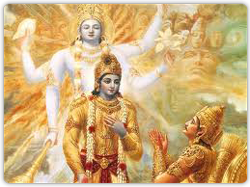 Krishna’s Counsel sweeps you back into the sleepy 1960s in Bangalore, south India, into the heart and mind of a fiery young girl whose domestic circumstances begin to disintegrate under the sword-thrusts of emotional dysfunction and eerie death. Pia flowers into womanhood desperately seeking peace; fortunately her Uncle Hari introduces her to a magnificent view of eastern philosophy, partly epitomized by the poignant scene in the Bhagavad Gita when Lord Krishna advises the quailing warrior Prince Arjuna to pick up his great bow Gandiva and rout the corrupt foe, regardless of the consequences. And yet Pia is so overcome by her demons that she abandons her roots and elopes to Manhattan with an American businessman. A decade later Pia is tracked down in the Big Apple and informed that her father is dead and that she is his only heir. Compelled to return to south India to deal with the legal aspects of her inheritance, Pia struggles to cope with a phalanx of old ghosts when horror strikes again—and she is forced by supernatural agents to heed the timeless advice of Lord Krishna as she finds herself on the trail of a charming psychopath who will stop at nothing to kill her….
Krishna’s Counsel sweeps you back into the sleepy 1960s in Bangalore, south India, into the heart and mind of a fiery young girl whose domestic circumstances begin to disintegrate under the sword-thrusts of emotional dysfunction and eerie death. Pia flowers into womanhood desperately seeking peace; fortunately her Uncle Hari introduces her to a magnificent view of eastern philosophy, partly epitomized by the poignant scene in the Bhagavad Gita when Lord Krishna advises the quailing warrior Prince Arjuna to pick up his great bow Gandiva and rout the corrupt foe, regardless of the consequences. And yet Pia is so overcome by her demons that she abandons her roots and elopes to Manhattan with an American businessman. A decade later Pia is tracked down in the Big Apple and informed that her father is dead and that she is his only heir. Compelled to return to south India to deal with the legal aspects of her inheritance, Pia struggles to cope with a phalanx of old ghosts when horror strikes again—and she is forced by supernatural agents to heed the timeless advice of Lord Krishna as she finds herself on the trail of a charming psychopath who will stop at nothing to kill her….
I do hope that when this saga emerges from my creative womb, you will enjoy both the temporal and mystical adventures of Pia at least as much as I am enjoying writing about them.
Happy 2014!
Follow Blog via Email
Enter your email address to follow this blog and receive notifications of new posts by email.
Click the buttons below to SHARE if you liked this post.


December 17, 2013
The Magic of Arunachala: Kali, Aghori & Unconditional Love #6/6
 What, in the first place, is unconditional love? Each of us is likely to have our own special definition of this phenomenon, while Google would likely manifest a gazillion definitions in about three seconds flat.
What, in the first place, is unconditional love? Each of us is likely to have our own special definition of this phenomenon, while Google would likely manifest a gazillion definitions in about three seconds flat.
For me, as I write this post, it is that perfect love that flows freely minus the expectations of the ego (mini-me), love without strings, love that seeks nothing but the welfare of the recipient, love that surges effortlessly from the infinite abundance of our true nature—not the raucous, limited, limiting, clamoring, two-legged “love” that dies, shrinks or withdraws when its conditions are unmet—or even worse, the so-called “love” that turns into vicious hate when not reciprocated—as when a spurned lover throws acid on a pretty girl’s face, or a jealous husband stabs his cheating wife to death. As Will Shakespeare said so eloquently so many centuries ago, love is not love that alters when it alteration finds.
What about the love of a mother for a beloved only child? A grieving mother ready to trade her life for that of her daughters—as Chloe had claimed she’d been prepared to do, so long ago in Manhattan? A mother who makes endless sacrifices so her child may flourish? Through my particular lens, while this is most certainly a refined form of human love, it does not even begin to approach my ideal of unconditional love—for the love of a biological parent is, after all, a heightened form of egoic love. Think about it dispassionately for a moment—would Chloe have been willing to surrender her own life for Amelia had Amelia been born to other parents? Unlikely, huh?
So what then could be a true source of unconditional love? To me, after decades of questing, it is the perfect guru—or spiritual teacher—who, because he or she has broken through the veil of samsara (relative reality) and has become the blazing love that is the source of the cosmos—can now guide others to find this same love—not in the ephemeral things of the world, but within the cave of the spiritual heart.
 I know this to be true because after my experience with the gentle Swami in Manhattan, I began to experience flashes of this higher love decades later in Tiruvannamalai, in the shadow of the sacred hill Arunachala—but only after I’d committed myself to the daily practice of Atma Vichara recommended by Ramana Maharshi, which is the investigation of the true Self, defined as Sat-Chit-Ananda (Existence-Consciousness-Bliss).
I know this to be true because after my experience with the gentle Swami in Manhattan, I began to experience flashes of this higher love decades later in Tiruvannamalai, in the shadow of the sacred hill Arunachala—but only after I’d committed myself to the daily practice of Atma Vichara recommended by Ramana Maharshi, which is the investigation of the true Self, defined as Sat-Chit-Ananda (Existence-Consciousness-Bliss).
Cosmic love comes to me as waves from this mountain, revered by millions of Hindus as the living body of Shiva, the Great God and Destroyer of the Indian Trinity. It comes to me despite the aching doubt I suffered for a good period of my early life here; truth be told, when I first heard folks raving about the power of this hill, I’d snigger at the notion that any sane human could believe this mound of earth could possibly personify liberation. Now I know better, but it’s a form of gnosis that does not easily lend itself to sharing with others—unless they too are diving into their spiritual heart.
Why is Shiva called the Destroyer, and what does He destroy? Shiva, being pure infinite consciousness, transcends all relative limitations—rather, He consumes all duality in his divine fire. What is the focus of Shiva’s destruction? The Ego, or one’s relative identity—because this is the one deadly block to knowing who we really are—beyond body, mind, emotion, gender, IQ, history, lineage, education, status, bank balance and track record.
We are the SELF, proclaims eastern philosophy, we are Sat-Chit-Ananda (Existence-Consciousness and Bliss). For those few of us who grok that nothing in mundane life can permanently satisfy us—for samsara is an ever-changing movie produced by Karma in collusion with Maya out of the seeds of our own past karmas—and who then turn our focus from the outside to the inside, it is in sacred dimensions (kshetras) like Tiruvannamalai that one can begin to peel away the layers of false self to uncover our true nature—which is Unconditional Love itself.
Part 1
Part 2
Part 3
Part 4
Part 5
Part 6
Follow Blog via Email
Enter your email address to follow this blog and receive notifications of new posts by email.
Click the buttons below to SHARE if you liked this post.


December 16, 2013
The Divine Canines: Kali, Aghori & Unconditional Love #5/6
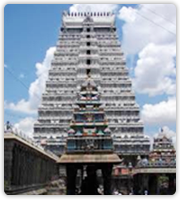 Even more water flowed under the bridge of my life. A decade or so later, without really meaning to—after all, woman proposes and Great Spirit disposes—I found myself in Tiruvannamalai, a famous temple town in south India. Despite a never-ending series of trials and tribulations, I decided this would be the home I’d been looking for—for the simple reason that I felt strongly that it was here that I could pursue my “Moksha Project”. (“Moksha” means liberation—defined by Ramana Maharshi as “permanent freedom from desire and fear”—and, in my opinion, the highest goal to which a human on the inner path can aspire.)
Even more water flowed under the bridge of my life. A decade or so later, without really meaning to—after all, woman proposes and Great Spirit disposes—I found myself in Tiruvannamalai, a famous temple town in south India. Despite a never-ending series of trials and tribulations, I decided this would be the home I’d been looking for—for the simple reason that I felt strongly that it was here that I could pursue my “Moksha Project”. (“Moksha” means liberation—defined by Ramana Maharshi as “permanent freedom from desire and fear”—and, in my opinion, the highest goal to which a human on the inner path can aspire.)
My new home was being built and I was looking forward to the prospect of cultivating a garden and adopting animals. So when my Latvian friend offered me two gorgeous pups of Himalayan origin, I leaped with joy.
The pups—whom I named Kali and Durga after my favorite Indian goddesses—won me over instantly. Tragically Durga was attacked by a deadly virus when she was a few months old and dissolved back into the elements; which left Kali, whom I almost lost as well. As I nursed my adorable jet-black fur-ball back to health, I processed the aching grief and guilt I felt over Durga’s passing.
Kali and I were immensely close—I knew right away we’d been connected in past lives. Every time I left home for a few hours, Kali would look so dejected that I simply had to get her another canine companion. Which is how Aghori—her rambunctious step-brother—came into our lives, once again through our Latvian friend.
 As time rolled by, I found myself putting the doggies’ welfare before my own selfish desires. My sweet God! Finally my long-cherished dream of learning how to love unconditionally was coming true!
As time rolled by, I found myself putting the doggies’ welfare before my own selfish desires. My sweet God! Finally my long-cherished dream of learning how to love unconditionally was coming true!
I stretched myself for the divine canines in ways I would not have considered doing for a human friend: I went out of my way to get them the food they enjoyed, shepherded them for endless vaccinations without excessive complaining—Tiruvannamalai is not an easy place to do things like this!, cajoled them to eat when they turned their noses up at my offerings, took them on daily walks despite the pain in my arms—the direct result of Aghori going wild at the sight of a peacock or monkey, and made sure they received a constant outpouring of love. I passed up several out-of-town and foreign trips in order to stay with my puppies, and when I did leave home on necessary jaunts, I made sure a friend who loves them took over from me.
Part 1
Part 2
Part 3
Part 4
Part 5
Part 6
Follow Blog via Email
Enter your email address to follow this blog and receive notifications of new posts by email.
Click the buttons below to SHARE if you liked this post.


December 15, 2013
The Wisdom of Bear: Kali, Aghori & Unconditional Love #4/6
 The years flew by and our group of fantastic females disintegrated. Some left Manhattan or began new lives that did not allow for the intimacy we’d shared as single women. As for me, I took a huge leap into the unknown at the eve of the millenium: I left my comfortable life in Manhattan for the foothills of the Himalayas in order to become a good Tibetan Buddhist. But that plan for enlightenment did not work out for a variety of reasons, and once again I found myself travelling here, there and everywhere, searching for that perfect home into which I could settle for the rest of my life, in order to focus on my creative and spiritual goals.
The years flew by and our group of fantastic females disintegrated. Some left Manhattan or began new lives that did not allow for the intimacy we’d shared as single women. As for me, I took a huge leap into the unknown at the eve of the millenium: I left my comfortable life in Manhattan for the foothills of the Himalayas in order to become a good Tibetan Buddhist. But that plan for enlightenment did not work out for a variety of reasons, and once again I found myself travelling here, there and everywhere, searching for that perfect home into which I could settle for the rest of my life, in order to focus on my creative and spiritual goals.
At one point, this search led me back into America, where I met a man whom I believed could evolve into the perfect mate for me. But soon I began to see ethical flaws in him that my rose-colored spectacles had initially masked.
While I myself am no masterpiece of humanity, I at least acknowledge that I am a work-in-progress composed of—relatively speaking—both good and bad; this fellow, however, hid his flaws beneath a million masks. As my vision cleared, I began to see a narcissistic and slippery man with no true respect for women and who suffered from the cardinal sin of emotional and material cheapness.
Heart-broken, I fled to a gorgeous ashram situated in the foothills of the Blue Ridge Mountains. My link with this sanctuary went all the way back to the late 1980s, when I’d studied to be a yoga teacher at the Integral Yoga Institute in Manhattan; this ashram happened to be its parent organization.
I’d admired the gentle Swami who had run the IYI, and who had so skilfully and humbly taught us how to convey the ancient teachings of Hatha Yoga. One night after class I had approached him with a personal problem for which I sought a spiritual answer. I had sat before him in an empty yoga room and poured out the muddled contents of my heart. So engrossed was I in my tale of woe that I had shut my eyes. All of a sudden I had felt light flooding the space around me. Thinking someone had entered the room and turned on a light, I swung around, but found no one there. I turned back to my guru and saw him shimmering with a soft golden light. My jaw dropped and I forgot my story. When I could speak again, I begged him to explain what was going on. “Disinterested love,” he murmured, but would say no more.
Decades later, the memory of that awesome night—when waves of divine love had first caressed me—drew me back to reconnect with this Swami, now head of the ashram in rural Virginia. The year was drawing to a close and most of my new yogi friends were heading back home to their families for the coming celebrations. A few invited me to their homes, but I declined: I needed to be alone to heal. In between working shifts at reception and in the kitchen, I began to take solitary walks through the countryside as I grappled with my own mushrooming pain.
During one of these rambles, I bumped into Bear, a Native American who worked as a landscaper at the ashram. Bear never lost an opportunity to compliment me on the Indian vegetarian meals I prepared every now and then for the ashram with the help of an enthusiastic team; slowly he and I had become friends. “Hey Mira!” he called now. “What’s wrong, baby? You look so sad!”
 On impulse, because I knew Bear to be a man one could trust with secret sorrows, I spilled my pain. Bear raised his face to the sky and ordered me to look upward; the sky just happened to be incredible that day in its sheer vast blueness. “You want love?” he thundered. “See that eagle flying so high over there…and those amazing clouds…and all those hills and valleys and whatnot….who you think’s behind all this goddamned beauty, huh, Mira? Love! Big Love! Cosmic Love! Great Spirit! Now don’t you go worrying about some stupid feller who don’t know how to appreciate the gold that you are, baby! Two-legged love ain’t love at all but mostly attachment, or lust, or whatever! If you want to feel real love, go into your heart!”
On impulse, because I knew Bear to be a man one could trust with secret sorrows, I spilled my pain. Bear raised his face to the sky and ordered me to look upward; the sky just happened to be incredible that day in its sheer vast blueness. “You want love?” he thundered. “See that eagle flying so high over there…and those amazing clouds…and all those hills and valleys and whatnot….who you think’s behind all this goddamned beauty, huh, Mira? Love! Big Love! Cosmic Love! Great Spirit! Now don’t you go worrying about some stupid feller who don’t know how to appreciate the gold that you are, baby! Two-legged love ain’t love at all but mostly attachment, or lust, or whatever! If you want to feel real love, go into your heart!”
Part 1
Part 2
Part 3
Part 4
Part 5
Part 6
Follow Blog via Email
Enter your email address to follow this blog and receive notifications of new posts by email.
Click the buttons below to SHARE if you liked this post.


December 14, 2013
Circle of Light: Kali, Aghori & Unconditional Love #3/6
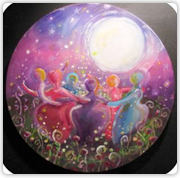 It was twilight by the time the entire group had assembled in my Brooklyn Heights apartment. We sat in a circle on the floor of my candle-lit living room and held hands in silence in order to create the perfect atmosphere for sharing. Then Melissa produced her Talking Stick and a mantle of awe fell upon us—for the polished wooden rod really did seem to exude a magical aura all of its own.
It was twilight by the time the entire group had assembled in my Brooklyn Heights apartment. We sat in a circle on the floor of my candle-lit living room and held hands in silence in order to create the perfect atmosphere for sharing. Then Melissa produced her Talking Stick and a mantle of awe fell upon us—for the polished wooden rod really did seem to exude a magical aura all of its own.
As hostess, I explained how we were going to use the stick to explore the concept of Unconditional Love. A few groans were uttered, which subsided under a volley of glares from those who took our sharing mucho seriously. Briefly I spoke of the high ceremonial and spiritual value of such a stick in the context of aboriginal democracy—that a Talking Stick is passed around in a group, or used by a leader as a symbol of his/her authority. Only the person holding the stick is allowed to speak—a wise custom that allows all participants to be heard, including introverts. Consensus can force the stick to move along to assure that the pedantic and long-winded don’t dominate the discussion, while the person holding the stick may allow others to interject.
 Melissa began the group share. She spoke about being an only child who’d struggled against the demons of addiction that had gripped her in early teenage soon after her mother’s suicide. Her father had remarried and her step-mother, an alcoholic with bipolar disorder, had treated Melissa like she was poison—but only when her father was not around. Her busy father had dismissed Melissa’s complaints about her step-mom as stemming from a morbid imagination, whereupon Melissa had begun slugging booze right out of her stepmother’s bottles. Simultaneously, she’d begun to smoke ciggies and pot, then graduated to coke in her twenties. She’d entered the 12-step rooms thoroughly vanquished; seven years later, she was still getting her life in order. Unconditional love? Heh heh heh…nice phrase, Melissa ended her share drily, but sorry, she’d never experienced it except in the merest of flashes. Still, she concluded, grinning her charming lopsided grin, as long as she was alive, there was hope.
Melissa began the group share. She spoke about being an only child who’d struggled against the demons of addiction that had gripped her in early teenage soon after her mother’s suicide. Her father had remarried and her step-mother, an alcoholic with bipolar disorder, had treated Melissa like she was poison—but only when her father was not around. Her busy father had dismissed Melissa’s complaints about her step-mom as stemming from a morbid imagination, whereupon Melissa had begun slugging booze right out of her stepmother’s bottles. Simultaneously, she’d begun to smoke ciggies and pot, then graduated to coke in her twenties. She’d entered the 12-step rooms thoroughly vanquished; seven years later, she was still getting her life in order. Unconditional love? Heh heh heh…nice phrase, Melissa ended her share drily, but sorry, she’d never experienced it except in the merest of flashes. Still, she concluded, grinning her charming lopsided grin, as long as she was alive, there was hope.
There was silence after she spoke; then Natalie raised her hand and Melissa passed her the stick. Natalie spoke of being one of the few biracial kids in her posh school—her father was a white lawyer who’d married his black secretary. Like Melissa, she too had finally sought solace in drugs and alcohol. Unconditional love? No luck so far, except for what she suspected might have been a trace of it, experienced while caring for a kitten she’d adopted from the local animal shelter after she’d gotten sober, three years ago.
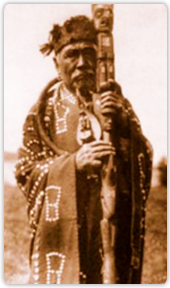 The stick moved on, and the sharing intensified. Chloe told us about the child she’d lost to leukaemia; she’d loved her little girl so deeply she’d have given her life to save her. Ah! Finally! Wasn’t this unconditional love? Or was it just the excessive love of a mother for her own flesh and blood? Chloe continued her tragic tale—Amelia had died, despite all their efforts to save her; unable to bear Chloe’s thickening depression, her husband had asked for a divorce. Alone, Chloe had begun to drink heavily until she too had finally found her way into AA.
The stick moved on, and the sharing intensified. Chloe told us about the child she’d lost to leukaemia; she’d loved her little girl so deeply she’d have given her life to save her. Ah! Finally! Wasn’t this unconditional love? Or was it just the excessive love of a mother for her own flesh and blood? Chloe continued her tragic tale—Amelia had died, despite all their efforts to save her; unable to bear Chloe’s thickening depression, her husband had asked for a divorce. Alone, Chloe had begun to drink heavily until she too had finally found her way into AA.
When my turn came to share, I found myself unexpectedly paralyzed. It struck me with all the force of a hammer blow that I’d never been able to love, or been loved, without a slew of conditions. I began to sob, huge racking sobs that shocked me more than anyone else. Other women had cried as they had shared as well, but my sobs shook the bloody roof. I bet my neighbors wondered what was going on in my apartment, because my weeping spread around the circle like a contagion, and soon we were all reduced to blubbering wailing wrecks. Then someone emitted a weak giggle, the crying turned into raucous laughter, and Delia piped up to say the smell of the dhal had made her ravenous, and when the hell were we going to eat, for heaven’s sake?
Part 1
Part 2
Part 3
Part 4
Part 5
Part 6
Follow Blog via Email
Enter your email address to follow this blog and receive notifications of new posts by email.
Click the buttons below to SHARE if you liked this post.


December 13, 2013
The Talking Stick: Kali, Aghori & Unconditional Love #2/6
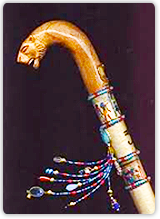 My turn to host our fortnightly gathering rolled around. I wanted to make the evening truly memorable, but how? Out of the blue, Melissa—a member of our group who lived in nearby Carroll Gardens—called to invite me to watch a documentary with her. Bored with her job as assistant editor at a fashion magazine in midtown Manhattan, Melissa had begun to explore all forms of spirituality with a vengeance; it was our shared passion for mysticism that had drawn us extra close.
My turn to host our fortnightly gathering rolled around. I wanted to make the evening truly memorable, but how? Out of the blue, Melissa—a member of our group who lived in nearby Carroll Gardens—called to invite me to watch a documentary with her. Bored with her job as assistant editor at a fashion magazine in midtown Manhattan, Melissa had begun to explore all forms of spirituality with a vengeance; it was our shared passion for mysticism that had drawn us extra close.
That night we munched on pizza with extra cheese and peppers and goggled at the documentary: an exploration of the life of a powerful shaman in Brazil. Afterward, Melissa showed me an amazing gift she’d received from the guy who’d lent her the documentary—a journalist back from a trip to a sacred spot in South America where shamans still held sway.
“It’s a Talking Stick,” she announced, brandishing it jubilantly before me. My wondering eyes took in a carved wooden stick about a foot and a half long ornamented with semi-precious stones and exotic feathers. Melissa said it had been fashioned by an old shaman at the request of her friend. “I’m so sick of urban folk calling the old tribes “primitive”…let me tell ya, honey, I’m convinced they’re way ahead of most of those rigid specimens I work with…d’you know why they use this stick for instance? So everyone gets a chance to put in their two cents during a council meeting….while you’re holding it, no one’s allowed to interrupt…no matter how rich or powerful or whatever. Now you tell me—how refined is that?
Et voila! It struck me that the Talking Stick would be the means whereby I could make our next meeting both exciting and profound. I begged Melissa to bring it over to my apartment for our next gathering; to my relief—because you never knew with moody Melissa—she agreed.
Women began to arrive at my apartment close to twilight the following Saturday. I’d been up early, doing my weekend shopping on Atlantic Avenue, then returning to prepare a feast: fragrant basmati rice flavoured with ghee and studded with almonds, cashews and raisins, a savory moong dhal, spiced potato, carrot and beetroot cutlets, and a tart-sweet cucumber-scallion raitha. As had become our group custom for these gatherings, the others would bring non-alcoholic beverages and scrumptious (often home-baked) desserts. All I lacked was a topic for our usual communal sharing—but not for long; as I took a last minute shower, it came to me in a flash.
 Now don’t yawn or roll your eyes—yes, it was the same old tired concept of “Unconditional Love” with which so many of us on the path of healing seem to be obsessed. And yet it had been lurking on the fringes of my mind for ages, and I suspected most of our group would concur that it was a suitable topic for our sharing. After all, we’d all been severely burned to various degrees in the seemingly random fires of life. Most of us had suffered grievously through separations, divorces, the loss of children, money, reputation and whatnot; most of us had emerged from these devastating experiences richer, wiser and warmer than ever before.
Now don’t yawn or roll your eyes—yes, it was the same old tired concept of “Unconditional Love” with which so many of us on the path of healing seem to be obsessed. And yet it had been lurking on the fringes of my mind for ages, and I suspected most of our group would concur that it was a suitable topic for our sharing. After all, we’d all been severely burned to various degrees in the seemingly random fires of life. Most of us had suffered grievously through separations, divorces, the loss of children, money, reputation and whatnot; most of us had emerged from these devastating experiences richer, wiser and warmer than ever before.
One woman had been sexually abused by her stepfather from the age of three and until she ran away from home at sixteen; another had lost her parents in a car crash when she was seven, and had been thrown into one foster care situation after another—apparently no one could deal with her rages; a third had been born to socialite parents who’d left her in the care of a series of weird nannies; another had recently lost her drug addict son—he’d been shot by a security guard while robbing a pharmacy. We were certainly not mainstream women; each of us had a backstory of suffering that had brought us together for communal healing.
As for me, while I’d certainly been “loved” by my parents, my critical adult eyes could find no trace of anything approaching “unconditional love” in my strict upbringing. My father had demanded that his children shine, no matter what; once I won three out of four prizes on Sports Day and got a lambasting for not getting the fourth! As for my dutiful darling of a mother, she was bent on fulfilling her duty as a traditional Indian parent—which meant preparing us for marriage to “good” mates from our community, regardless of what we really wanted to do with our lives, and despite the fact that the world had drastically changed since she herself had been a reluctant teenage bride of sixteen.
Part 1
Part 2
Part 3
Part 4
Part 5
Part 6
Follow Blog via Email
Enter your email address to follow this blog and receive notifications of new posts by email.
Click the buttons below to SHARE if you liked this post.


December 12, 2013
A Goddess Mandala: Kali, Aghori & Unconditional Love #1/6
 During my post-divorce years in Manhattan, I grew close to a band of unusual women ranging in age from their 20s to their 50s. Some were freelancers or regulars at the posh corporate law firm for which I then worked; others I’d bumped into at some cheese-and-wine affair that trendy Manhattanites throw in order to compensate for a crazy work-week; still others I’d encountered through the 12-Step program, whose meetings I attended in order to eradicate the insidious smoking habit slowly but surely draining my life force.
During my post-divorce years in Manhattan, I grew close to a band of unusual women ranging in age from their 20s to their 50s. Some were freelancers or regulars at the posh corporate law firm for which I then worked; others I’d bumped into at some cheese-and-wine affair that trendy Manhattanites throw in order to compensate for a crazy work-week; still others I’d encountered through the 12-Step program, whose meetings I attended in order to eradicate the insidious smoking habit slowly but surely draining my life force.
Going to AA to deal with a smoking addiction, you demand incredulously? But AA’s for folks with alcoholic dependency, ain’t it? True, AA was originally designed for the alcoholic, and yet liberal Manhattanites were open to a wider definition of addiction. In those often dark and stuffy spaces where addicts and alcoholics of all ages and backgrounds converged in order to keep each other sober, I found myself welcomed, sponsored and loved—until—as the popular saying goes—I was able to let go of my crutches and begin to love my unique self.
The aftermath of divorce had left me shattered in both material and spiritual terms. Humbly I acknowledged my need for multi-spectrum healing. My new friends advised me to abstain from romantic relationships so I could commit myself fully to the process of re-integrating mind and body with spirit. This advice sat well with me, for the emotional beating I’d been taking on and off for the past fourteen years of marriage had tarnished my once sparkling notions of romance, while delving into eastern philosophy had convinced me that, in the ultimate analysis, it is Spirit alone that counts.
I was immensely reassured to encounter other women who’d also been shoved through their own tunnels of despair and survived; these women too, I soon discovered, had temporarily eschewed romance in order to concentrate on inner work. As we grew to trust each other, we began to take turns organizing fortnightly gatherings in our apartments—gatherings that enhanced the comfort and security of our friendship without all the crap that often goes with man-woman relationships—especially in meat-market Manhattan.
 We decided to meet every sixth Saturday as a group; the main event was a sharing circle based on the AA dictum: “that you are only as sick as you are secret”—meaning that emotional suppression is the root cause of all dis-ease. Our hostess for the fortnight would introduce the topic, and each of us in turn would share uninhibitedly on it. The idea was to dissolve all barriers by revealing that which we could not safely disclose to main-streamers—for fear of being ridiculed, attacked or even, in some cases, fired: The Mugginses of the world, as we were all well aware, do not appreciate the maverick and the alien.
We decided to meet every sixth Saturday as a group; the main event was a sharing circle based on the AA dictum: “that you are only as sick as you are secret”—meaning that emotional suppression is the root cause of all dis-ease. Our hostess for the fortnight would introduce the topic, and each of us in turn would share uninhibitedly on it. The idea was to dissolve all barriers by revealing that which we could not safely disclose to main-streamers—for fear of being ridiculed, attacked or even, in some cases, fired: The Mugginses of the world, as we were all well aware, do not appreciate the maverick and the alien.
Part 1
Part 2
Part 3
Part 4
Part 5
Part 6
Follow Blog via Email
Enter your email address to follow this blog and receive notifications of new posts by email.
Click the buttons below to SHARE if you liked this post.


December 6, 2013
LOVING ANIMALS STRAIGHT FROM THE HEART…
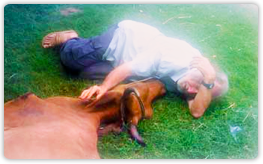 “The greatness of a nation and its moral progress can be judged by the way its animals are treated.” - Mahatma Gandhi
“The greatness of a nation and its moral progress can be judged by the way its animals are treated.” - Mahatma Gandhi
As ho ho ho time looms again, perhaps you’re open to giving away a wee bit of what’s been lavished upon you by this spectacular cosmos—and I’m not talking about special gifts to family, friends, clients and other people/causes connected to your own well-being and way of life, but this time to dogs, cats, cows, snakes, monkeys and other animals in dire straits in a far-away world—marvelously sensitive and vulnerable beings who’d likely bless your heart of gold if only they could—for making the rest of their lives just that teeny weeny bit sweeter.
Pity most Indians don’t hark to the profound words of the Mahatma—possibly because the great majority of us are still ignorant of the wisdom he poured into the coffers of this vast and paradoxical nation that bristles with such sharp inequities. Based on what I see here in Tiruvannamalai, the rural poor—many illiterate and struggling to keep it all together in a rapidly changing world—don’t treat animals as if they even had rudimentary feelings—except when those animals are of commercial use. As for the wealthy—contrary to standard international thinking, there is a large segment of Indians who enjoy far higher standards of living than their counterparts in the west—they tend to treat their pets exceedingly well, some spending great amounts on gourmet food and vet care, but those are in the minority.
Now for a brief segue into the past….one of the incredible things I cherish from my years of plunging into the treasure trove of Gautama Buddha’s teachings are the Paramitas, the supreme virtues one is urged to cultivate if one seeks moksha or enlightenment; the first of these Paramitas is giving, or generosity.
Radically different points of view separate mainstream notions of giving from the eastern philosopher’s: for instance, while the regular world would scorn you as an idiot for giving generously when the wolf is pounding on your door, the radical seeker of enlightenment is taught to give especially when the chips are down—for it is giving, minus the ego, that burns the bad karma that weighs one down.
Now the act of giving is no simple thing: a wannabe Boddhisattva is urged to investigate the motives that lead her to want to give, and to make sure that gift goes to the right person, at the right time, for the right reason, and with right intention.
Back in Manhattan, I knew a stockbroker who regularly forked over hard cash to his addict pal for his next fix—with the sheepish excuse that he hated to see his precious friend suffer the agonies of withdrawal. A wealthy lawyer I worked for bought his pampered niece an expensive car right after she totalled the one he’d recently bought her—this despite knowing she had a serious drinking problem and urgently needed counselling—and not another fancy toy which could lead not just to her own death, but to that of others. Other rich folk I happened to meet during my stints on Wall Street and in New York law firms donated big sums of money just for kudos or publicity or to feel better about themselves or whatever.
By the standards set by the ancient Paramitas or transcendental virtues, none of the above would figure as acts of real giving—for each act was linked to a sense of identity, or inspired by ulterior motive, and therefore none meet the standards of a pure act of generosity—where the giver, the receiver and the gift are all empty of having an egoic load.
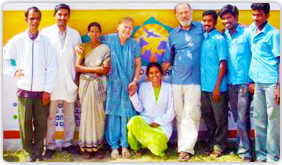 As for me, after a lifetime of being conned in little and big ways, I have a healthy respect for this energy we call money; as we all must know by now, money in the wrong hands, or used with evil intention, can wreak terrible destruction.
As for me, after a lifetime of being conned in little and big ways, I have a healthy respect for this energy we call money; as we all must know by now, money in the wrong hands, or used with evil intention, can wreak terrible destruction.
That said, all unrepentant Scrooges be damned! It is such a delicious pleasure to be able to give! And while I am a zillion miles away from that exalted state where one gives without expecting even a simple thank you, I can honestly say that it’s always given me a super thrill to rustle up little gifts to all sorts of people—and not just to those I am emotionally attached to, or who can make my life easier in some way.
Here in Tiruvannamalai, home of the sacred mountain Arunachala and the incomparable sage Ramana Maharshi, I’ve found an organization I genuinely wish to support. It is the Arunachala Sanctuary for distressed animals; here’s the link: http://cms.arunachalasanctuary.com/compassion. Please especially do take a look at the “straight from the heart” messages from Leslie Robinson (available on the website), who founded this sanctuary years ago, and who has kept it running, against all odds, with the ardent support of a few dedicated men and women, especially Vishwa, his assistant, and skilled and compassionate Dr. Raja, a master of surgery and so much else. (Donation details are at the end of this post!)
I’m going to end this post with excerpts from Leslie’s latest missive, written on June 20, 2013:
Dear Ones…
So much has happened since last I wrote. One of the major things was a shelter money crisis. It’s the first time ever we’ve had to deal with something like this. We actually ran out of money. Fortunately I was able to get a personal loan of $15,000 that gave us enough time to move towards our supporters to get money in. Survival itself was on the table.
The thought of us going down is almost unthinkable. Thousands, literally thousands of animals would fall into unbounded suffering. All the animals we care for through rescues, emergencies, adoptions, clinic visits, and hospital activity would come pouring onto the streets.
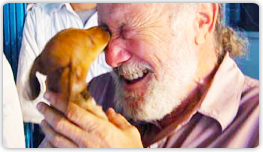 In the first month alone there would be 20 to 50 suffering and dying animals on the street. After a year there would be over 250, which is where it was when we first opened. The good relationship between the homeless dogs and the humans amongst whom they live that was so hard to get would collapse. When there’s that much suffering it’s overwhelming and people can’t deal with it. They just cut the dogs out of their awareness. Rabies would re-manifest. In three or four years the population would once more be out of control and at least 7,000 more puppies would be born each year – most of whom would suffer and die.
In the first month alone there would be 20 to 50 suffering and dying animals on the street. After a year there would be over 250, which is where it was when we first opened. The good relationship between the homeless dogs and the humans amongst whom they live that was so hard to get would collapse. When there’s that much suffering it’s overwhelming and people can’t deal with it. They just cut the dogs out of their awareness. Rabies would re-manifest. In three or four years the population would once more be out of control and at least 7,000 more puppies would be born each year – most of whom would suffer and die.
It took us six years of focused effort, and many, many blessings, let alone an enormous amount of money to get to this point. Where all the animals—homeless, owner, domestic, wild. large, small, are cared for. Where the relationship between homeless dogs and the humans amongst whom they live has been transformed. (Tiru is probably the only sizeable municipality in the nation where this has happened). It’s unlikely that this would ever again happen, It would simply be lost. There might be sterilization programs, and perhaps a clinic, but nothing like what has magically unfolded here.
The pressure was enormous. We reached out in so many directions. And thank God there were enough of you out there that responded to carry us through. Immediate survival is no longer on the table. We have a three or four month platform to get things together. But we now carry a debt in excess of $25,000.
There were many, many others (who donated to keep us going). Some who were financially pressed themselves sent in modest donations. But money gets much, much more mileage here and every dollar really helps. All were sent in from the Heart and give us the energy to prevail and persevere.
There were some that were able to give enormous amounts. $1000, $2,500, $5,000. There was a bodhisattva yogi from Dubai whom I had only heard of. I was aware of his activities. That he was a yogi. And that he had a very beautiful heart. I sent him an unsolicited plea. Told him about us. And heard nothing for two weeks. Then Dr.Raja called from the post office. A check had come in the mail. He asked me to guess how much it was for. And then he told me. Five lakh. That’s equivalent to $10,000. Bless you. I think that you would like to remain anonymous.
Thanks to each of you. For those who are not inclined to donate, send us your good wishes. Say a prayer for us. Tell others.
Thank God for Dr. Raja and Vishwa. It’s simply humbling. The limitless energy and devotion that goes into their work. So much suffering is being lifted. Being inside the shelter is a deeply moving experience. All these vulnerable creatures. Feeling safe. Cared for. Resting. Playing. Chasing. Thank you. Thank you. Thank you Dr. Raja and Vishwa. My gratitude. My feelings for each of you are so vast and deep.
We could have put together a decent shelter without them. But never, never like the one we have with the two of you. It’s the energy. The love. The unassuming, unpretentious commitment that is operating all the time.
To you out there. I wish you could experience it. I wish for you the blessing at some time in your life of being in a situation where the efforts you put forth are able to lift so much suffering.

Hello again precious ones…if you don’t already know, according to certain teachings on karma, what goes around does not just come around in equal measure, but is multiplied at least four times; not that I’m suggesting you should give just so you can receive. But still, it’s reassuring from the human point of view to know that the cosmos showers abundant grace on those who acknowledge the fact that, in the ultimate analysis, we all originate, and must eventually return, to one inconceivably luminous source. And so, if you are even a fraction as moved as I am by the brilliant efforts of this valiant team, please make a donation, even if it’s a tiny amount.
For Direct Online transfers, please visit the website: http://cms.arunachalasanctuary.com/compassion
For Mailing Cheques:
Make cheque payable to “Arunachala Animal Sanctuary & Rescue Shelter” and mail to:
Arunachala Animal Sanctuary & Rescue Shelter
Chengam Road, Next to Government Arts College
Tiruvannamalai 606 603 Tamil Nadu, India
Important: Please do include a note with your name, address, and email address
For Wire Transfers:
Please email (arunachalashelter@yahoo.com) and we will send you instructions.
With much love and gratitude for being an integral part of my little life!
Follow Blog via Email
Enter your email address to follow this blog and receive notifications of new posts by email.
Click the buttons below to SHARE if you liked this post.






